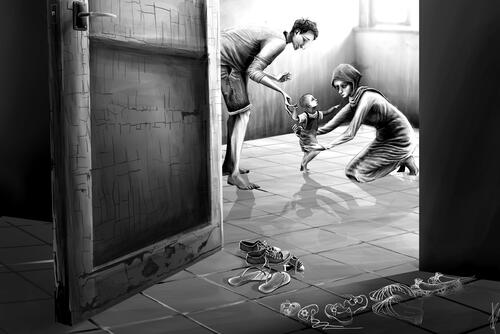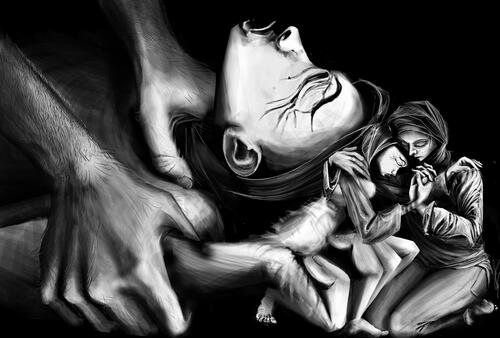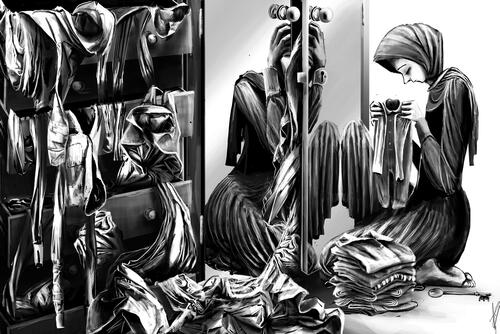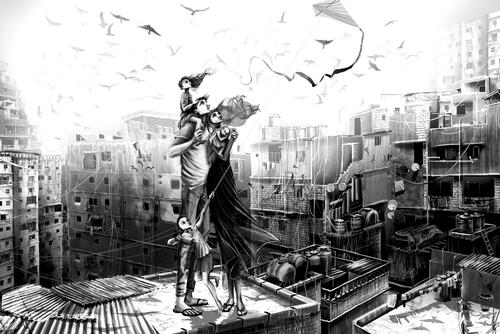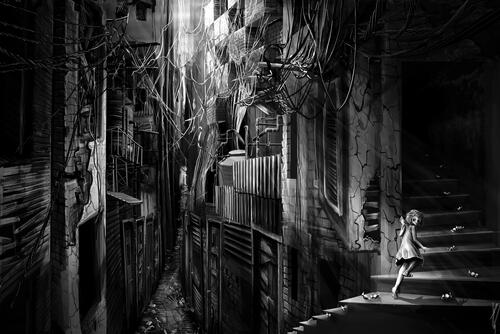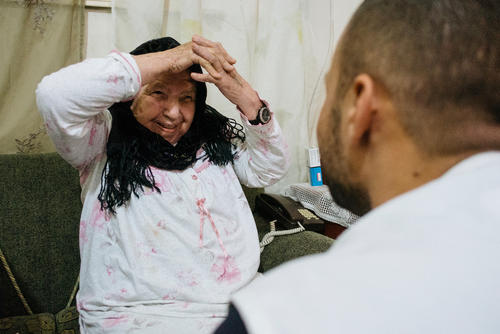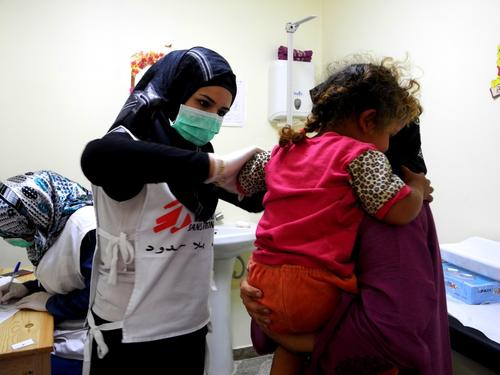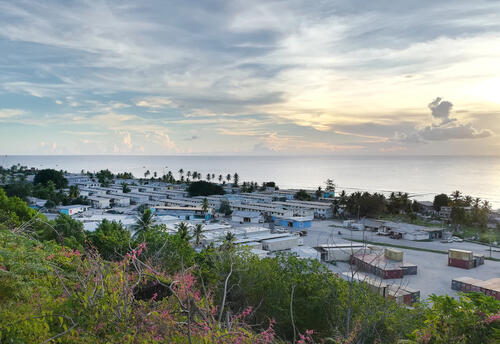In late 2018, Ella Baron, a cartoonist on assignment with the Guardian, visited our clinic in Shatila refugee camp, Lebanon. She collected the testimonies of patients - mostly Syrian women - and MSF staff and produced the following illustrations, based on their stories.
With Ella's illustrations, MSF psychologist Miriam Slikhanian shares her experiences of working with refugees in Shatila camp.
Two years ago, I started working as a clinical psychologist at MSF’s clinic in Shatila refugee camp, in Beirut. I had expected that most of my work would be related to psychological trauma. But I soon learned that it was mostly related to the daily challenges of living as a refugee.
Shatila camp was originally set up for Palestinian refugees in 1949. The camp now hosts Syrian and Palestinian refugees, as well as other minorities such as Ethiopians and Filipinos. All live in deplorable conditions.
Loss and distress provoke anger and aggression
People here are deprived of their basic needs. To be a refugee generally means to struggle every day to find something to eat, to be in a safe place, to be respected, and to have the space to develop into the person one could potentially be.
Apart from their dark history of trauma, their loss of loved ones and possessions, and their displacement to a foreign land, they face a daily struggle to meet their basic needs. They also face humiliation and discrimination, and live with constant uncertainty about the future. Among the patients at MSF’s clinic in Shatila are a large number of Syrian refugees, especially women, seeking mental health services.
Women here are sometimes used by their husbands to vent their own distress. Many women suffer violence on a regular basis – whether social, economic, verbal or physical. They are sometimes told to remain silent and strong, no matter what they feel inside. They toil for their husband and children while carrying the pain in their heart. Women, whose voices and tears can barely be heard, absorb care and compassion like dry soil absorbs the rain.
As victims of violence, some also tend to take it out on their children. But through their tears of regret, I can see the love and compassion they have for their little ones.
MSF teaches patients mental health symptoms and solutions
MSF has been providing free psychological support for refugees in Shatila since 2013. A number of psychologists – including me – provide individual, family and group support for individuals of all ages. In 2017, over 3,000 individual mental health sessions were offered to the patients in Shatila and in Burj Al Barajneh, another neighbouring refugee camp.
The people I see every day have a variety of symptoms. Their mental health problems are largely precipitated by stressful events and by the situations they live in. Depression, anxiety and post-traumatic stress disorder are very common reactions.
I help them cope with their emotional or psychological problems by listening empathically and providing validation of their feelings. I educate them about their symptoms and the impact of stressful events, and I teach them ways to overcome their mental health difficulties. Confidentiality and privacy are key in our sessions. We often work in multidisciplinary groups of social workers, doctors and nurses, to ensure the physical, psychological and social wellbeing of our patients.
Difficult but rewarding work as an MSF psychologist
Working as a psychologist in Shatila is challenging because, unlike other places where I’ve worked, the problems here are not purely related to mental health. It’s difficult to help a person with a mental health issue if their larger problem is that they are unable to feed their children or to find a safe place to stay.
Working here with MSF, I have learned that refugees are stuck in a limbo between the past and the present. On the one hand, they yearn to be in their countries, in their own houses, with their loved ones. But it is not a choice for them when their houses no longer exist, when they are at constant risk of death or have no means to sustain themselves. On the other hand, they wish to be in a safe place. But they are fighting daily to find enough food to eat, a safe place to shelter and people who regard them with respect.
In many ways, my work with refugees has a healing effect on me. I remember days when I have had to fight back tears while at work. But at the same time, welcoming patients through my door, showing compassion towards their pain, receiving their gratitude for being listened to and receiving their smile afterwards, lifted my spirits.
Women, whose voices and tears can barely be heard, absorb care and compassion like dry soil absorbs the rain.MSF psychologist Miriam Slikhanian
My reward for working here is to see how people’s lives are changed after receiving our services. I’ve seen people start to accept the reality of their situation and develop resilience. I’ve seen people who have been able to change their circumstances through psychological support. And I’ve seen people who have started to have hope in humanity after realising that there was someone who cared.
My friends often ask me why, when I could work in a much better place, I choose to work here. My answer is always the same: ‘If everyone said this, no one would reach out to people who suffer every day of their lives.’
I believe that I am here for a reason, and I will do my tiny part for the wellbeing of people who suffer. For me, to see one smile on a broken face, one glimpse of hope in a hopeless heart, or one word of gratitude from lips that were silent, is enough to know that this work is worthwhile.
Médecins Sans Frontières (MSF) began working in Shatila in September 2013. To address the needs of the vulnerable population, we currently run a primary health care clinic and a women’s health centre to provide free of charge medical services including care for chronic diseases, vaccinations, mental health services and sexual reproductive health. In addition, we are collaborating with local and international organisations to ensure an efficient referral system.



